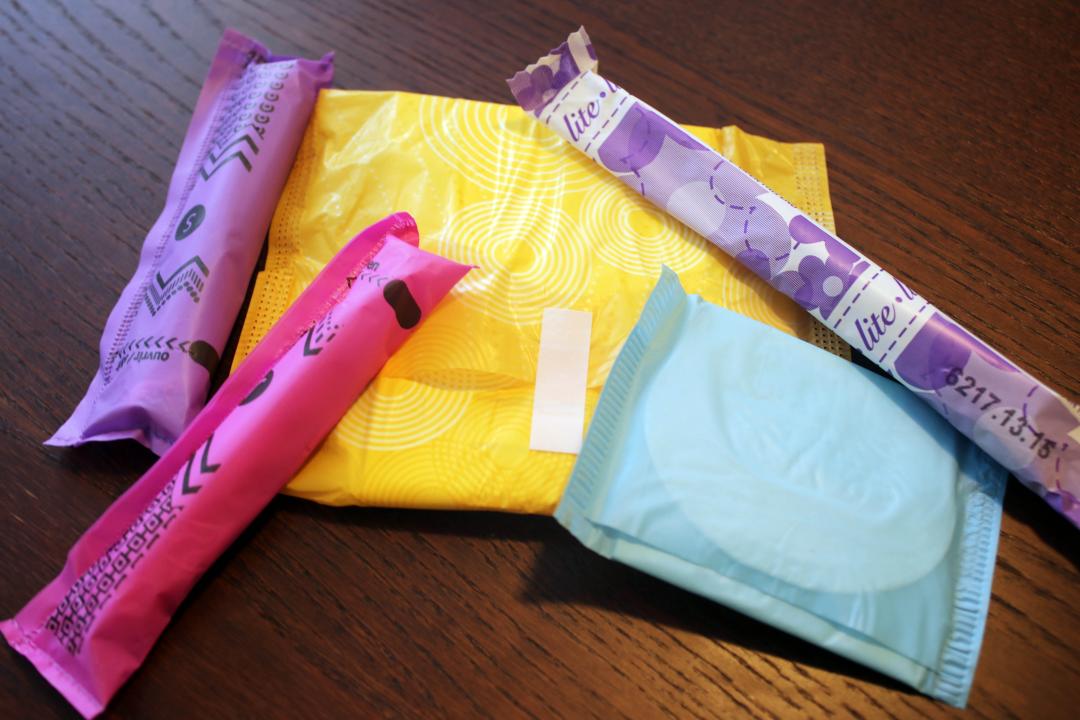The University of Maryland, Baltimore County’s Student Government Association plans to launch a free menstrual product pilot in the spring 2021 semester, which will place dispensaries in the gender-neutral bathrooms of three to five residential halls and will distribute 500 pads and 500 tampons across the dispensaries.
“After speaking to Dr. Jess Myers [director of the Women’s Center], she told me that not only women get periods. That really stuck to me. [That’s] the main reason why we want to achieve this [goal] in gender-neutral restrooms,” said senior biology and psychology major and SGA Speaker of the Senate Kai Hajos.
The menstrual products and dispensaries will come from Aunt Flow, a third party seller that specializes in selling menstrual products in bulk to schools and corporations. The dispensaries have a timer to prevent “overconsumption” of the menstrual products, as stated on the company’s website. Currently, Brown University, Ohio University and Denison University are also customers of Aunt Flow.
The main goal of the initiative was to make the products accessible. Freshman economics and political science double major and First Year Ambassador Banke Abassi explained that avoiding going to someplace like the front desk of a residential hall or University Health Services to get a pad or a tampon prevents any awkwardness or embarrassment felt by those that get periods.
“In [my] high school, those products were in the nurse’s office, and you [never wanted] to go from the bathroom to the nurse’s office to get it. [This is] just something that is accessible to all students, and they don’t have to go out of their way to get it,” said Abassi.
Hajos stated that sophomore computer science major and SGA Senator Mariah Qureshi echoed this taboo surrounding the need for menstrual products in emergencies, explaining that he, Mariah and the other SGA Senators hope that having dispensers in the gender-neutral bathrooms on campus will help normalize some people’s needs for menstrual products.
“We want to get rid of that student stigmatization,” said Hajos. “Like, half of the world population needs [menstrual products], and I think it’s ridiculous, the stigma behind how this is so under wraps.”
SGA allocated 300 dollars for the pilot and is continuing to raise money to buy more menstrual products. They hope that other organizations, particularly pre-medical focused organizations, will help raise more funds. As of now, UMBC’s Pre-medical Society and the Society of Women Engineers have partnered with SGA to help spread the word about the pilot program. The FYAs involved in the initiative are still reaching out to other organizations to help show the administration how much the UMBC community wants to see the pilot succeed.
Hajos, other SGA Senators and FYAs involved in the pilot program hope that, barring a successful pilot, free menstrual products will become a long-lasting amenity on campus. Their goal is to transfer the responsibility for buying and stocking the products to UMBC administration to free up SGA funds for other initiatives.
“For the time being, SGA is more than willing to support this initiative,” said Hajos. “But, ultimately, a few years down the line, we want to slowly transition it to be the UMBC administration, possibly Residential Life or University Health Services to finance this.”

